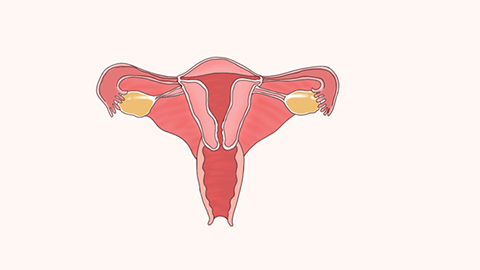What causes the endometrium to become thin?
Generally, thinning of the endometrium may be caused by aging, excessive dieting, endometritis, intrauterine adhesions, ovarian insufficiency, and other factors. It is recommended to seek timely medical consultation to identify the underlying cause and receive symptomatic treatment under a physician's guidance. Detailed explanations are as follows:

1. Aging: As women age, ovarian function gradually declines, resulting in reduced estrogen secretion, which fails to adequately stimulate endometrial proliferation and leads to thinning of the endometrium. A balanced diet rich in soy products to supplement phytoestrogens, regular sleep patterns avoiding late nights, and routine gynecological examinations to monitor endometrial thickness are recommended.
2. Excessive Dieting: Long-term excessive dieting leads to insufficient nutrient intake, affecting the supply of raw materials for hormone synthesis, causing decreased estrogen levels, and subsequently limiting endometrial growth. Adjusting dietary structure to ensure adequate intake of proteins, vitamins, and minerals, restoring normal body weight, and avoiding extreme dieting for weight loss are recommended.
3. Endometritis: Often caused by infections such as bacteria or mycoplasma, repeated inflammation damages the endometrial tissue, leading to thinning of the endometrium and possibly accompanied by abdominal pain and abnormal discharge. Maintaining genital hygiene, avoiding unhygienic sexual practices, and following medical advice to use antibiotics such as metronidazole tablets, doxycycline hydrochloride tablets, or clindamycin capsules for anti-infective treatment after onset are recommended.
4. Intrauterine Adhesions: Often caused by injury to the basal layer of the endometrium during uterine cavity surgery, leading to partial or complete adhesion of the uterine cavity. The endometrium cannot grow normally, resulting in thinning, often accompanied by reduced menstrual flow. Patients with mild symptoms may follow medical advice to use medications such as estradiol valerate tablets, conjugated estrogens tablets, or dydrogesterone tablets to promote endometrial repair. If medication proves ineffective, hysteroscopic adhesiolysis may be performed to separate the adhesions and restore the normal uterine cavity morphology.
5. Ovarian Insufficiency: Hormonal deficiencies, including estrogen and progesterone due to ovarian dysfunction, result in thinning of the endometrium due to lack of hormonal support, possibly accompanied by menstrual cycle irregularities. Maintaining emotional stability, avoiding excessive fatigue, and following medical advice to use medications such as progesterone capsules, ethinylestradiol cyproterone acetate tablets, or drospirenone ethinylestradiol tablets to regulate hormone levels and improve ovarian function are recommended.
In daily life, avoid long-term use of drugs affecting hormones, minimize uterine cavity surgical procedures, maintain regular exercise to enhance physical fitness, and adopt a healthy lifestyle to support endometrial health.




